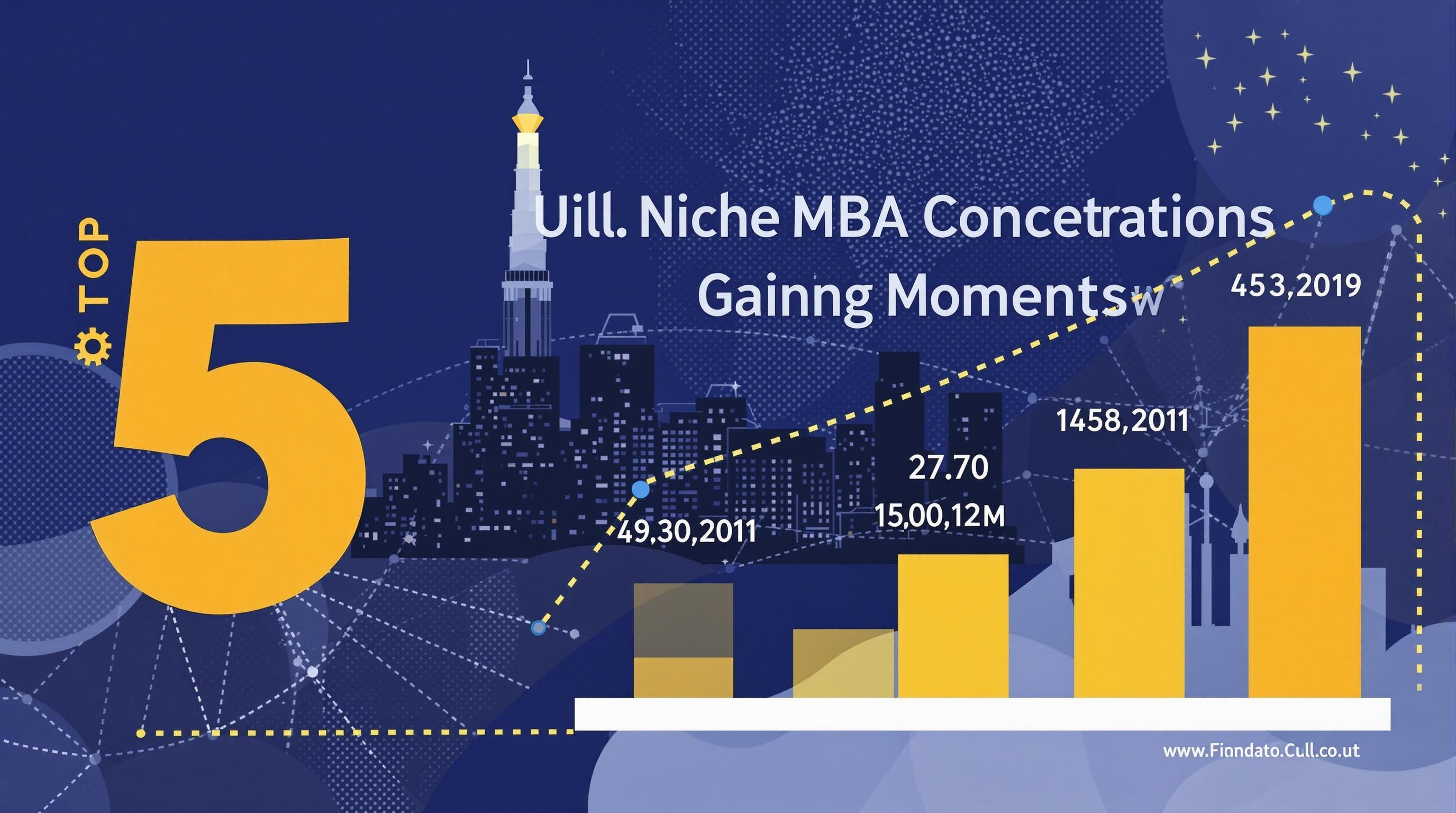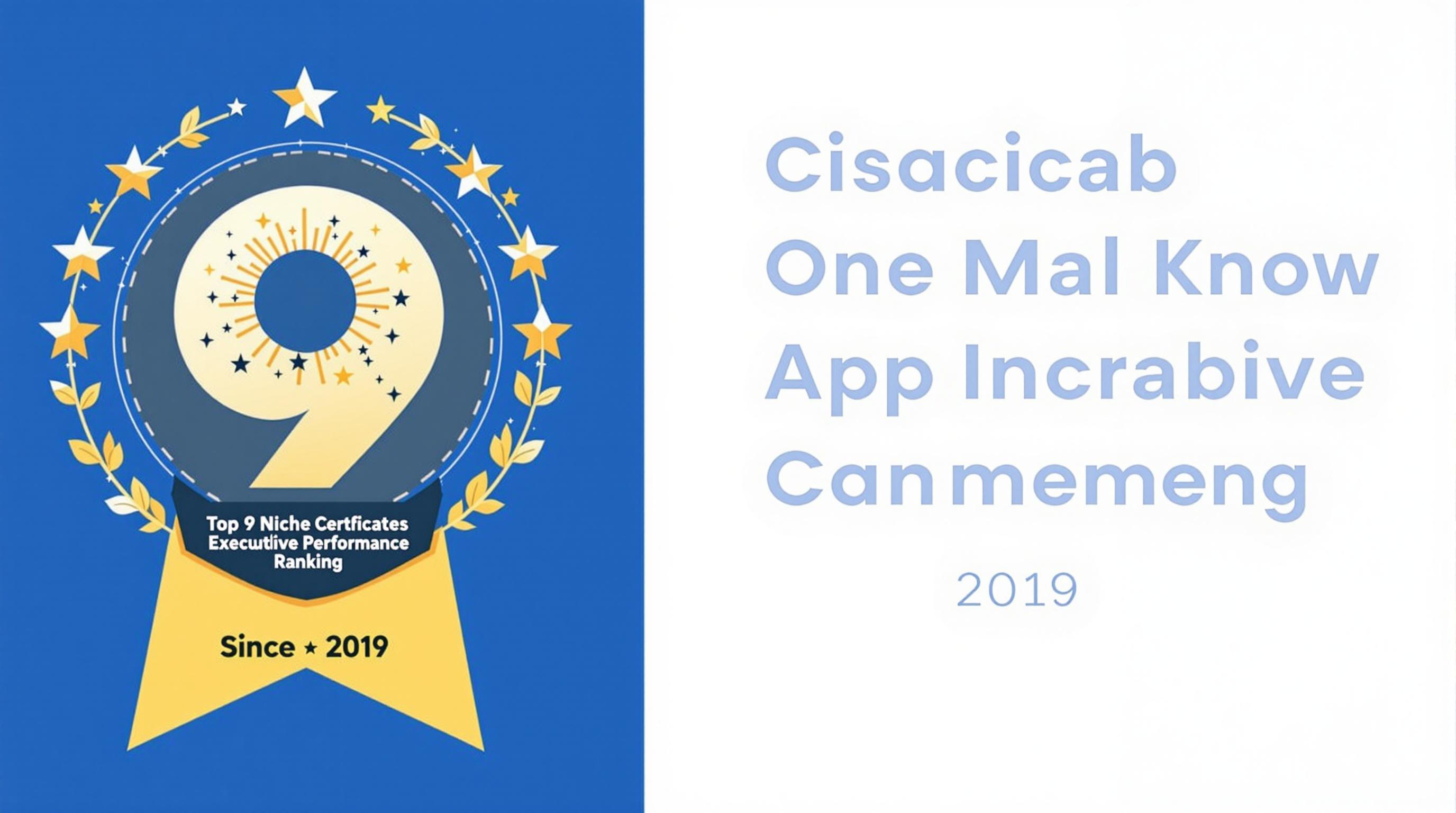Related Articles
- How Experimental MBA Concentrations Quietly Influence Corporate Culture and Decision-Making Strategies
- Top 5 Niche MBA Concentrations Gaining Momentum Since 2019 Ranked by Industry Impact and Growth
- Top 5 Smart Notebooks Released Since 2019 to Revolutionize Your MBA Networking Note-Taking and Follow-Up System
- The Untapped Role of Introversion in Building Stronger MBA Peer Networks and Authentic Industry Bonds
- How MBA Graduates Navigate Ethical Dilemmas in Emerging Markets to Influence Policy and Practice
- 7 Most Disruptive Productivity Platforms From MBA Alumni Launches Changing How Leaders Work Since 2019
Top 7 Game-Changing Advanced Business Programs Introduced Since 2019: Expert Ranking & Analysis
Top 7 Game-Changing Advanced Business Programs Introduced Since 2019: Expert Ranking & Analysis
Top 7 Game-Changing Advanced Business Programs Introduced Since 2019: Expert Ranking & Analysis
In recent years, the business landscape has evolved dramatically, prompting educational institutions to innovate their curricula. Since 2019, several advanced business programs have emerged, transforming leadership development, data analytics, and strategic innovation education. This article presents a carefully researched ranking and analysis of the top 7 programs that have significantly impacted business education.
Our expert ranking is based on program relevance, faculty expertise, curriculum innovation, industry connections, and alumni success. Each program was rigorously evaluated, providing insights for prospective students, industry professionals, and academic observers alike.
These programs reflect a growing emphasis on digital transformation, sustainability, and global business strategy—key trends shaping the future of enterprises worldwide. Let’s explore these groundbreaking programs section by section.
1. MIT Sloan’s Master of Business Analytics (launched 2019)
MIT Sloan introduced its Master of Business Analytics program in 2019, designed to equip students with cutting-edge data science skills tailored for business challenges. Emphasizing machine learning, optimization, and data visualization, this program responds to increasing demand for analytics expertise in strategic decision-making.
The curriculum balances rigorous technical training with real-world applications, including a capstone project with industry partners. PMI’s report on digital transformation highlights that businesses prioritize analytics skills, making this program particularly forward-looking.
Beyond coursework, MIT Sloan’s extensive corporate network offers invaluable internship and job placement opportunities, underscoring the program’s practical advantage for graduates seeking leadership roles in analytics-driven organizations.
2. INSEAD Global Executive MBA (launched 2020)
INSEAD revamped its Executive MBA program in 2020 to meet the evolving needs of global senior managers. This restructured Global EMBA emphasizes leadership agility, innovation, and digital transformation within a truly international context.
The program blends rigorous leadership modules with immersive global experiences across multiple continents, enhancing cross-cultural competence. Experts praise this format for developing leaders equipped to navigate complex international markets and digital disruption.
According to the Financial Times EMBA rankings (2023), INSEAD’s program ranks consistently in the top 5 worldwide, attributing success to its dynamic faculty, diverse cohort, and strong alumni network driving innovation in both startups and multinational corporations.
3. Harvard Business School’s MBA with a Focus on Climate and Sustainability (introduced 2021)
In response to mounting ecological concerns, Harvard Business School integrated a sustainability-focused track into its MBA program in 2021. This program addresses environmental challenges through business solutions, blending economics, policy, and corporate responsibility.
The curriculum features case studies on sustainable business models, green finance, and the emerging circular economy. It prepares students to lead initiatives that prioritize both profitability and ecological impact—a crucial skill set in today’s market.
Harvard's leadership in sustainability education is supported by the Harvard Business Review’s 2022 emphasis on sustainable business trends, highlighting the growing importance of such programs in shaping future leaders.
4. Stanford GSB’s Data-Driven Decision Making Program (launched 2019)
Stanford Graduate School of Business launched its Data-Driven Decision Making certificate program in 2019. This initiative focuses on empowering executives with analytical tools to make informed strategic decisions using big data and AI technologies.
The program’s strengths lie in its interdisciplinary approach, combining behavioral economics with data science. It includes hands-on workshops, case analyses, and integration with Silicon Valley innovation ecosystems.
Recognized by Forbes as a premier executive education program, Stanford’s offering bridges the gap between traditional leadership skills and modern technological fluency necessary for sustainable competitive advantage.
5. London Business School’s Masters in Analytics and Management (introduced 2020)
London Business School responded to market demands by launching its Masters in Analytics and Management in 2020, blending operational insights with strategic management. The program targets professionals aspiring to lead in data-centric environments.
Its curriculum spans predictive analytics, business forecasting, and strategic leadership, enriched by case studies from leading European and global companies. The dynamic format allows for both full-time and part-time options, catering to diverse learner needs.
Industry surveys by Deloitte have emphasized the need for business leaders able to harness analytics for real-time decision making, validating the relevance of this program in building versatile managerial talent.
6. University of Chicago Booth School of Business’s Entrepreneurship Focus Track (updated 2021)
While entrepreneurship has long been a core Booth strength, the 2021 revamped Entrepreneurship Focus Track has introduced innovative experiential learning components and venture incubation support. It prepares students to launch or scale ventures with a combination of financial rigor and creative problem-solving.
The program offers mentorship from successful entrepreneurs and access to Chicago’s vibrant startup community, emphasizing practical, market-tested skills over purely theoretical knowledge.
According to the Kauffman Foundation’s 2022 report, experiential entrepreneurship education correlates closely with startup success rates, highlighting this program’s value for aspiring founders and intrapreneurs.
7. Wharton School’s AI in Business Specialization (introduced 2022)
Wharton launched its AI in Business specialization in 2022 to prepare future leaders for integrating artificial intelligence into enterprise strategies. This program covers AI fundamentals, ethical implications, and transformation of business processes through intelligent automation.
It incorporates case studies from sectors such as finance, healthcare, and retail, illustrating AI’s disruptive potential. The program also addresses AI governance and regulatory environments, fostering responsible leadership.
According to McKinsey’s 2023 AI adoption report, business leaders proficient in AI strategy gain significant competitive advantages, underscoring Wharton’s specialization as a forward-thinking educational offering.
Conclusion
The advanced business programs introduced since 2019 reflect a paradigm shift in business education, geared toward digital fluency, sustainability, and global leadership. Each program offers unique strengths, tailored to distinct career paths and emerging market trends.
From MIT’s focus on analytics to Harvard’s sustainability leadership and Wharton’s AI specialization, these initiatives underscore the importance of continuous learning in today’s fast-changing business environment. Prospective students should assess their goals against these specialized curricula to identify the best fit.
By innovating program design, faculty expertise, and industry collaboration, these top-ranked programs are shaping the next generation of transformative business leaders prepared to thrive in an uncertain world.




